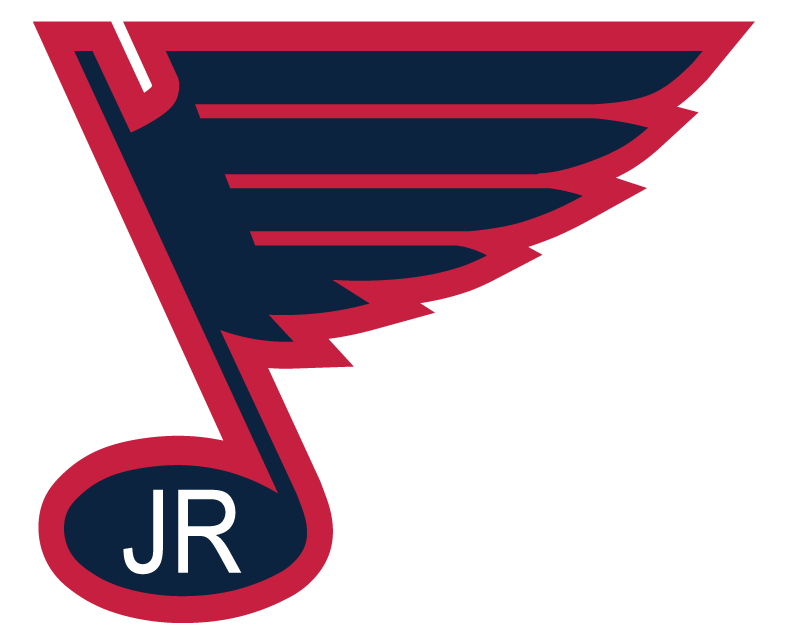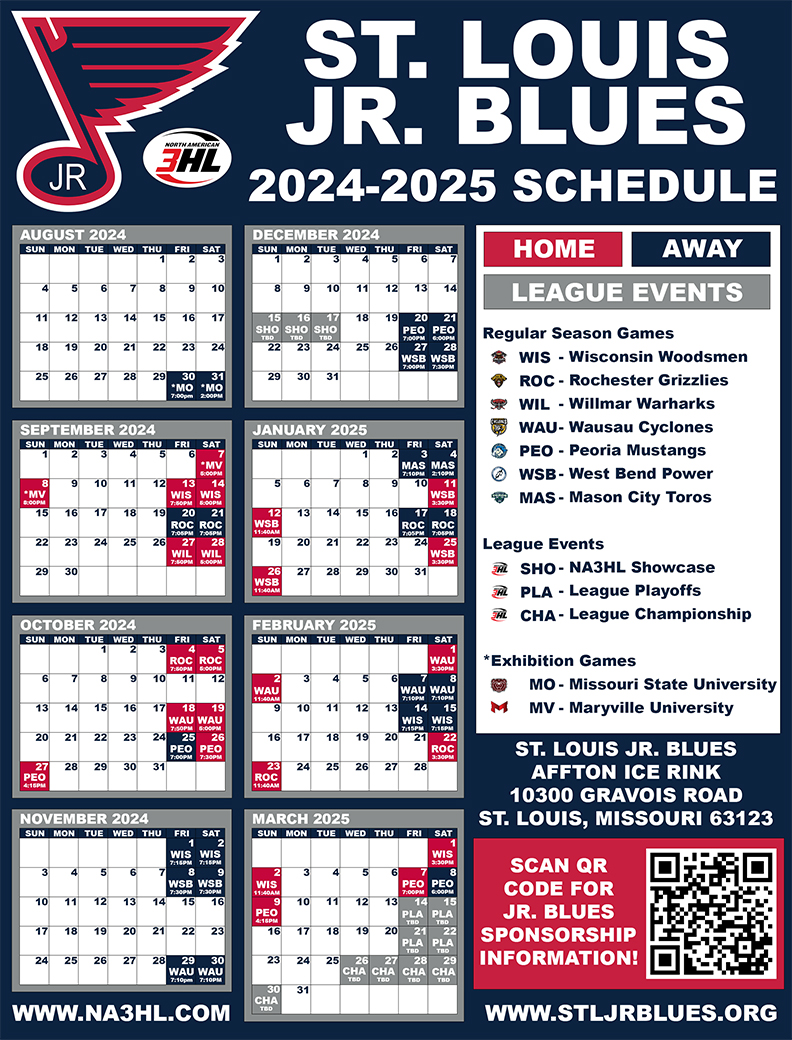It is not unusual for some of the better hockey prospects in Canada and the United States to leave home when they are teenagers in order to play for better junior teams in those countries. The St. Louis Junior Blues, however, are a team loaded with home-grown talent, with 25 of the 29 players on the roster coming from the metro area.
One of the four players not from the area is from WIsconsin, and one is from California. The other two traveled a little farther to join the team … all the way from Moscow, Russia.
Denis Chaltsev, a 17-year-old, has split time in goal for the Junior Blues this season and has posted a 17-1 record with four shutouts, a 1.50 goals against average and a .944 save percentage. Timofey Tankeev, who will celebrate his 17th birthday on Wednesday, is a 6-foot-2, 180-pound forward who has had a terrific offensive season. In 43 games, Tankeev has scored 25 goals and added 43 assists for 68 points.
When you realize Tankeev is only the third-highest scorer on the team with those totals, it is not hard to understand why the Junior Blues are tearing up the Central States Hockey Leauge. With four games left in the regular season, the Junior Blues are 41-3 and ahead of second-place Dubuque — which has a 34-7 record — by 14 points. The Junior Blues have two home games left on the schedule, at 7:45 p.m. Saturday at the Affton Ice Rink, and at 12:45 p.m. Sunday at Affton. Both games are against the Metro Jets from Michigan.
Both of the Russian players have adapted well to the differences in the American game of hockey. Chaltsev is in his second season of playing in the United States, while Tankeev is completing his first year in the country.
Tankeev, who lives with a family which owns a little hockey rink in the backyard, is really satisfied by his move from Russia to America. Actually it\’s not the first time he crossed the Atlantic, as he played overseas in a number of tournaments. His first trip gave him many memories, one of them was particularly funny.
\”When I first came to America, it was in the 1994, we were arranged to some local families. And when I knew the family\’s members, they asked if in Moscow we really had bears in the streets. This really impressed me, I couldn\’t believe that Americans think that we [Russians] live in forests. When I flew back to Moscow, I told that to my parents, and they laughed \’till tears,\” Tankeev said.
Both players think that the differences between playing in America and in Russia mainly lie on the different speed and physicality of the game, but it\’s interesting to see how the different roles make them see the game in a different perspective.
\”Due to the different rink size the play here is faster and tougher. There are many dangerous shots and lots of bounces,\” said Chaltsev said. \”In Russia there is more emphasis on passing play and players\’ technique. Now I try to combine Russian hockey school with American speed.\”
Tankeev\’s position is similar.
\”Hockey here is a bit faster and tougher,\” he said. \”You have to take a decision twice as fast as in Russia. You can\’t get your head down even for one second, or someone will give you a good lesson.\”
This opinion isn\’t the only one the two young Russians share. They also think that, crossing the Atlantic, they made the right move. Chaltsev, who still has a Patrick Roy poster pinned up on the wall of his room in Moscow, admitted that he is \”satisfied. I play in a very strong and united team, our coaches are wonderful. But I won\’t suggest anything to my Russian country mates. It\’s very hard to leave home, family and friends when you are 16. But in Russia it\’s hard to get as much ice time as you get in America. On the other hand, if you don\’t get game practice you can\’t improve. Everybody should decide for himself.\”
On the subject of leaving home, Tankeev said that he had always \”dreamed about proving myself in America. I\’ve read a lot about the NHL and I wanted to see it with my own eyes. And then I got the possibility to fulfill this dream. Different hockey, different lifestyle, everything is different and interesting. I regret nothing, it\’s really a great experience for me.\”
Chaltsev talked about how he started playing hockey \”late\” when he was growing up in Moscow, when he was nine years old.
\”I didn\’t decide myself to play as goalkeeper. When I joined the team, the coach was looking for a goalie. He tested many boys, including me. My results were good and thus I decided to try. On Feb. 2 it marked nine years of goaltending for me,\” Chaltsev said.
\”I started playing in a team called Sozvedie (in Russian, that means constellation), in Moscow. Later I joined Dynamo. I chose hockey because my best friend was playing it too. In addition, it\’s a very dynamic sport where you have to take many decisions as quickly as possible. The ability to stand up for yourself is essential. And in Russia we say that only the \’coward\’ doesn\’t play hockey.\”
Tankeev played on different teams in Moscow before joining Dynamo. \”My father brought me to the Krylya Sovetov hockey school as it was next to our home. I was just five,\” he said. \”But he put me on skates earlier, when I was three and half years old. I played there four years. Then I spent other four seasons in CSKA Moscow, then I spent a further year playing for Dynamo.\”
Tankeev, who said that he misses Russian cuisine along with his family and friends, wanted to share another thought about the CSHL. \”The level [of the league] is very good. All the practices and the games are really fast. And the coaches scold me in the same manner they used to praise me in Russia. There are many matches, but the training process is structured in such a way that you can have a rest or work and practice independently. I like the team\’s discipline and the respectful approach of the coaches toward all the players.\”
With the Olympic hockey competition beginning this way, Chaltsev was prepared to answer one additional question — whether he would rather win the Stanley Cup or the Olympic Gold Medal.
\”Both,\” he replied with confidence. \”I am a maximalist, my dream is to win them both.\”






































